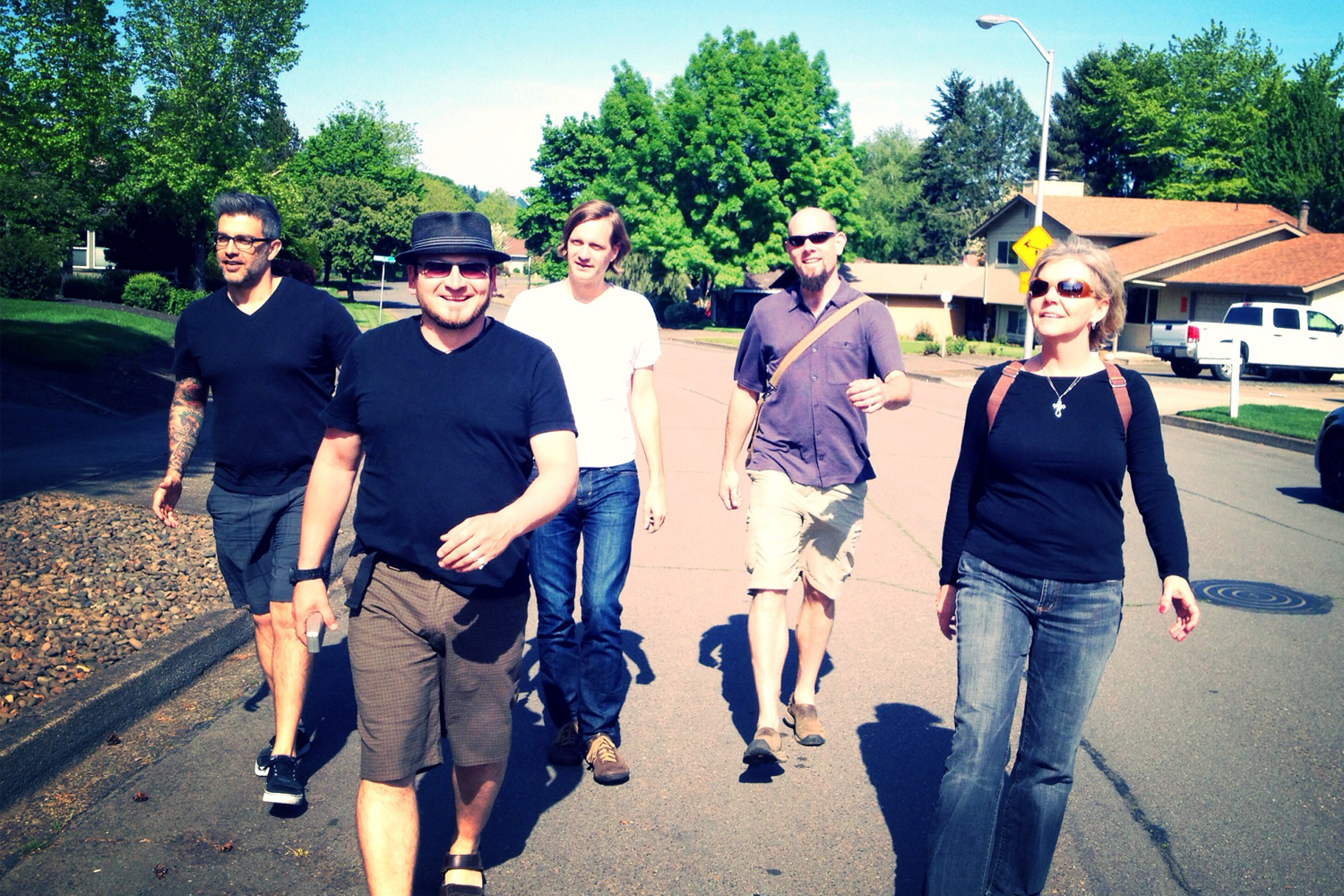Dwight J. Friesen (Associate Professor of Practical Theology), Tim Soerens, and Paul Sparks, Leadership in the New Parish Certificate program facilitators and authors of the popular book, The New Parish, recently returned from a multi-city book tour along the West Coast of the United States and into Canada.
During the tour, the authors met with church planters and change-makers interested in rooting themselves in their neighborhood and linking together with those who share similar values and visions for the Church in the world today. Along the way, they shared struggles and dreams with these practitioners, both old and new connections. Tim Soerens, who is also a graduate of The Seattle School Master of Divinity program (2007) and a co-founder of the Parish Collective, recently shared reflections from the summer tour and insight into the future of the New Parish movement.
Visiting with practitioners in such diverse contexts helped to give Tim, Dwight, and Paul insight into how the content of The New Parish and their curriculum for the Leadership in the New Parish Certificate program takes different shapes for varying communities.
When asked about the neighborhoods that stayed with him most as he looks back on their full summer, Tim quickly mentioned the communities they visited in East Oakland, CA, and Silverton, OR. East Oakland is part of metropolitan San Francisco and is changing as conversations around gentrification are becoming more prevalent in the area. On the other hand, Silverton is a small-town community, of which John Pattison, Leadership in the New Parish alumnus and co-author of Slow Church, is a member.
Silverton, OR, allowed the authors to see how parish-based churches might function differently for small towns versus large cities. Visiting with practitioners in such diverse contexts helped to give Tim, Dwight, and Paul insight into how the content of The New Parish and their curriculum for the Leadership in the New Parish Certificate program takes different shapes for varying communities. Surprisingly, Tim noted, the Silverton community was facing many of the same issues as the community in East Oakland.
The continued interest in The New Parish book and the larger movement of which it is a part have shown the authors that God is indeed at work inspiring change in neighborhoods across the country and around the world. Within each of the communities visited, the authors recognized the same desire: a deep yearning for a localized and embodied way of being the church. In Long Beach, California, nearly 50 people showed up to their event, interested in how the ideas of The New Parish could affect their communities, despite none of the authors had been to Long Beach before or having any direct connections there.
Tim described the tour as providing “gift after gift,” both for the authors and the communities they visited. Many event attendees said that the book put language to their thoughts and experiences of what God is already up to in their own hearts and neighborhoods. The authors are now planning future conversations and adjusting their Leadership in the New Parish curriculum based on the questions being asked by the diverse communities now interested the New Parish movement. For the authors, the next step in these conversations will center around connecting faith and the commons as these faith communities seek to engage local economic, environmental, educational, and civic issues.
These questions will continue to be a topic of conversation at New Parish and Inhabit Conference gatherings, including the Leadership in the New Parish Certificate program and this fall’s Inhabit UK, Inhabit’s first venture across the pond, as well as the annual Inhabit Conference in Seattle this April. The New Parish movement has undoubtedly become one of the most significant conversations regarding the future of the church today. It is yet another conversation that The Seattle School of Theology & Psychology is proud to be a part of as we seek to continuously participate in dialogue that engages the kingdom of God through the lens of text.soul.culture.

